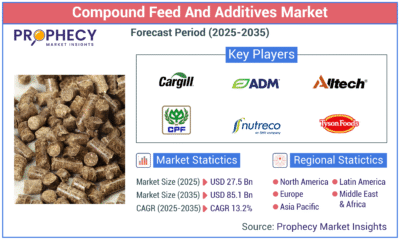Child Welfare
Trump’s Immigration Policy Would Make Food Inflation Even Worse

In a recent analysis, experts warn that former President Donald Trump’s proposed immigration policy could exacerbate food inflation in the United States. As food prices remain a pressing concern for many Americans, the implications of such a policy could have far-reaching effects on the economy and consumers alike.
Key Takeaways
- Trump’s immigration policy may lead to labor shortages in the agricultural sector.
- Food inflation remains a significant issue, with many Americans feeling the pinch at the grocery store.
- Polls indicate a bipartisan concern over food prices, with many supporting measures to combat price gouging.
The Current State Of Food Inflation
Food inflation has been a hot topic in recent months, with prices remaining high despite some signs of stabilization. A recent poll revealed that 80% of likely voters in swing states are in favor of measures to combat price gouging, highlighting the widespread concern over food affordability.
Trump’s Proposed Immigration Policy
Trump’s immigration policy, which includes stricter border controls and reduced immigration, could lead to significant labor shortages in the agricultural sector. Farmers and food producers rely heavily on immigrant labor, and any reduction in this workforce could result in decreased food production.
Potential Consequences For Food Prices
- Labor Shortages: A decrease in available labor could lead to higher wages for agricultural workers, which may be passed on to consumers in the form of higher food prices.
- Reduced Production: With fewer workers, the overall production of food could decline, leading to scarcity and increased prices.
- Increased Tariffs: Trump has suggested using tariffs on imports to lower food prices, a strategy that may backfire as tariffs typically increase costs for consumers.
Public Opinion On Food Prices
The public sentiment regarding food prices is clear. Many Americans, regardless of political affiliation, are concerned about the rising costs of groceries. The support for Kamala Harris’ plan to ban price gouging indicates a desire for immediate action to address these issues, even if the proposed solutions may not directly impact current prices.
Conclusion
As the debate over immigration policy continues, the potential impact on food inflation cannot be overlooked. With many Americans already struggling with high food prices, any policy that threatens to exacerbate this issue could have significant political and economic ramifications. The intersection of immigration and food prices is a critical area for policymakers to address as they seek to balance economic growth with the needs of consumers.
Sources
-

 Press Release5 days ago
Press Release5 days agoNura Labs Files Revolutionary Patent: AI-Powered Wallet Solves the $180 Billion Crypto Staking Complexity Crisis
-

 Press Release3 days ago
Press Release3 days agoGlobal Compound Feeds and Additives Industry Report: Market Expansion and Competitive Insights to 2035
-

 Technology3 days ago
Technology3 days agoWhat to Know Before Switching Cell Phone Network Services in 2025
-

 Press Release1 day ago
Press Release1 day agoCrypto WINNAZ Launches First On-Chain Yield Engine for Meme Coins, Enabling 20x–300x Returns














